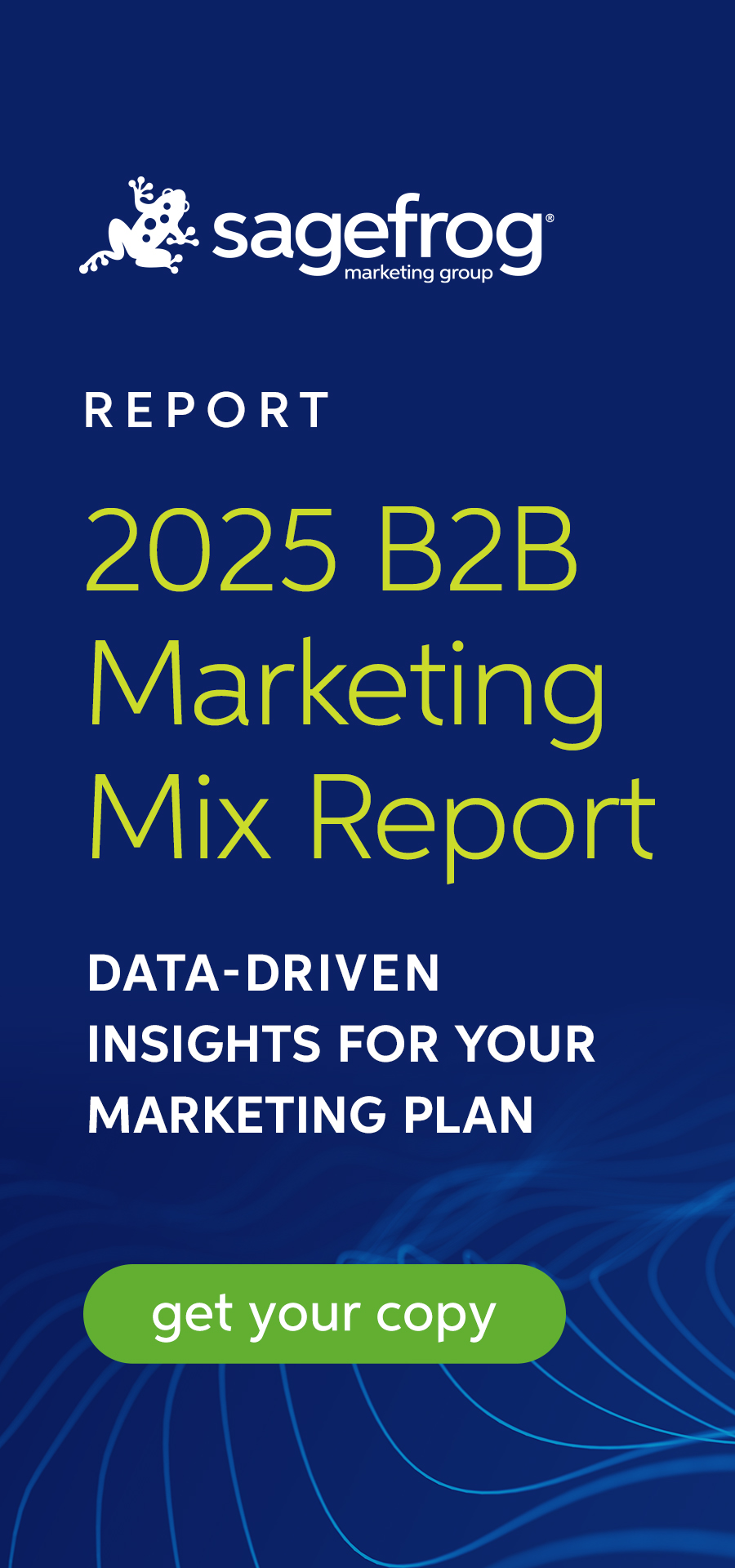During our last Google Partner event, both Google executives and Sagefrog certified Google experts discussed the status-quo on the search engine’s capabilities related to B2B search engine marketing and search engine optimization. The event’s discussion detailed the ways people consume media, mobile’s impact on search and information consumption, the role of Google My Business, and so forth.
But today, Google’s algorithms in combination with peoples’ needs have changed—and what was once best practice for B2B paid search is no longer the case.
Here’s what you need to know about B2B search engine marketing and pay-per-click (PPC) for B2B lead generation as you move into 2020. Essentially, if you want fast results, paid is the way to go.
Changes to Google’s SERP
The first page of Google is where every company wants to be. Showing up on the first page of the SERP, or the Search Engine Results Pages, is a big deal. Not only is it highly competitive for saturated markets, but Google has made it much harder for any company to rank on the SERP organically and here’s why:
- The first four positions of the SERP are often saved for paid advertisements (if a keyword is less desirable, there may not be four bidders and the space will become available)
- The remaining top positions are often given to directory and “best of” listing sites
- The SERP volatility is low; it rarely changes and requires significant effort
Because of this, it’s become increasingly important for companies to invest in paid search if they want to be found on page one. With billions of searches per day and nearly 90% of shoppers beginning their search for a product online—not appearing on Google is detrimental to any business. Don’t get us wrong: SEO is still a necessary tactic, but it’s a long game—and won’t generate results overnight.
The Mobile Tipping Point
Mobile usage per B2B worker is expected to increase from two hours a day to three by 2020, driven by millennials, Gen Z, and the increasing use of smartphones by older workers.1 Right now, search is at a mobile tipping point, meaning searches on mobile exceed searches on desktops. The implications?
- Searchers on mobile devices will rarely scroll past the top four results
- Searchers spend less time scrolling and are more likely to choose a high-ranking option
This is an important reason why companies and B2B SEM agencies are prioritizing paid search over search engine optimization when possible. Of course, PPC, display, and paid search require third-party spend beyond agency fees, so it’s not always viable—especially for small-to-medium-sized businesses with a limited marketing budget. But as changes to the SERP by Google’s algorithms and mobile usage continue to evolve, it’s important to consider how your tactical marketing plan needs to adjust as well.
SEM & Your Content Strategy
Another major change by Google that’s making paid search more necessary is the ability to see what people are searching for through Google Ads. This data used to be available in Google Analytics, giving anyone access to the search queries of their target audience. This essential data, however, which should be used to inform your content marketing strategy, is only now available through paid campaigns.
Doing More With Google Ads
With all the changes Google has put in place to make paid search the preferred search tactic, it’s also given marketers more flexibility with how they write, use, and leverage the PPC ads. A few things:
- Ad headlines and descriptions now allow for more characters and options
- Ad extensions let you take up more real estate on the SERP, enabling you to add links to your site, exclusive discounts, and offers in the ad itself to improve your click-through rates (CTRs)2
What’s To Come
Currently in beta, Lead Form Extensions will provide companies with the ability to capture lead contact information right in the ad. The forms integrate directly with your CRM, such as HubSpot, to streamline your workflows and ensure alignment between marketing and sales. Check your Google Ads account or ask your B2B PPC agency (or us!) to check it for you.
Are you ready to take on digital marketing in 2020? Keep these Google changes in mind and contact us for help setting up, maintaining, and accelerating your success with SEM and SEO.

